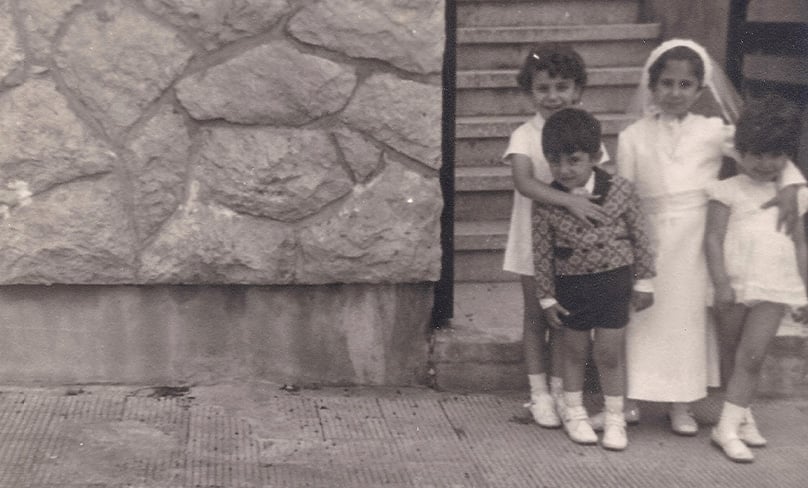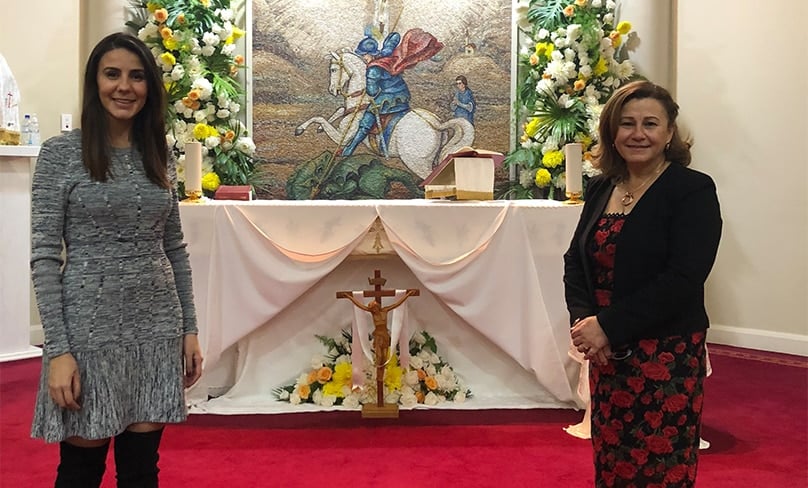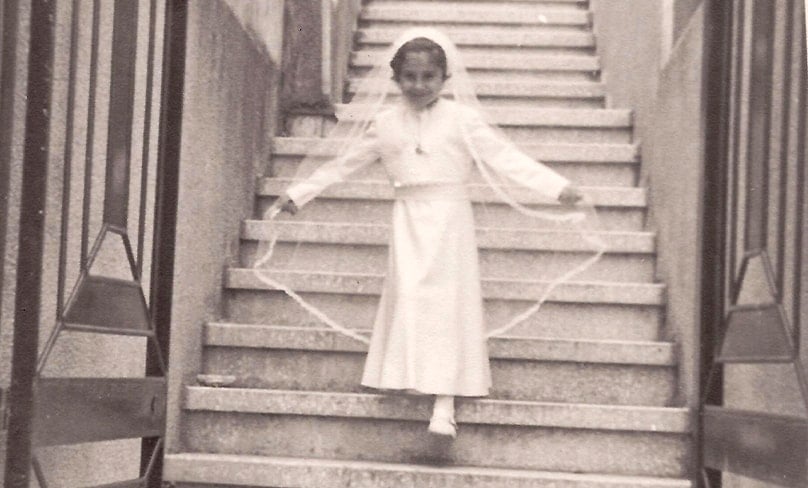
By Ann-Marie Boumerhe
Born into a devout Maronite family from a picturesque coastal village near the bay of Jounieh, Lebanon, my mother was a dedicated parishioner of her local church, Our Lady of Perpetual Help – Saydet el Maounat.
Growing up, and like many young children across Maronite parishes, Oumi [my mum], was enrolled as one of the Knights of the Virgin Mary, a group dedicated to living as children of our Mother Mary.
In the Fersen Al Aadra, as it is known in Arabic, vows are made wholeheartedly, and Knights wear a blue and white neck scarf, consecrating themselves to the Blessed Virgin every week.
Every Sunday, Oumi, her siblings and children from the village, would meet an hour before Mass to practice hymns, chants, and solo improvised melodies based on pre-composed tunes.
“It is through the endeavours and talents of the people, like Oumi, that Maronites have overcome geographic boundaries and stand as the guardians of these traditions.”
This music, forever stored in her memory, would have a greater impact than she could have known at the time.
At Mass, Fersen leaders would select one talented singer from the group to begin the service with a hymn dedicated to the Virgin Mary, Ya Oum Allah.
At just six, and despite her small stature, Oumi had a voice that was powerful and euphoric. Every week she would be selected, and she would sing with all her heart, standing tall on a wooden footstool to help her reach the microphone.
Since the 19th Century, many Lebanese have left their home country, looking for a new life including many who now call this great nation of Australia baladna – our country. The pursuit of political freedom and opportunity has come with immense challenges, both obvious and unexpected, but few as confronting as the preservation of our religious identity and heritage.

Throughout history, despite persecution at the hands of her adversaries, the Maronite Church in Lebanon has continued to stand strong as the mother church for Maronites around the world. In return, Maronites abroad are unyielding in their efforts to preserve their traditions.
It is through the endeavours and talents of the people, like Oumi, that Maronites have overcome geographic boundaries and stand as the guardians of these traditions.
For as long as I can remember, my mother has unwaveringly served in the Maronite Church of Sydney.
I have vivid memories as a young girl of standing close to her, nestled in her Sunday skirt as she stood, eyes closed, praising with her whole heart, to Jesus through Mary.
“Marian Sodality groups and choirs play a key part as well; they are established in every Maronite parish so that all Australian Maronites can learn the repertoire through listening, participating and practise.”
At home, liturgical hymns were sung before a domestic altar to reflect the liturgical season.
Every May, and during “the month of Mary”, my family, neighbours and even visitors would gather, united in hymns and prayers of praise to the Virgin Mary.
I didn’t realise the significance at the time, and never in her lifetime would my mother dream of claiming the reality, that by using her talents, she is playing a crucial role in preserving our ancient traditions across the Australian Maronite diaspora.
An emphasis on community remains in the Maronite Church, highlighted in the invitation of parishioners to further discover their belonging to the Lord through their commitment to a deep faith nourished by the Church. In the Maronite celebration of the Eucharist – Qurbono in Syriac or Quddas in Arabic, the Divine Liturgy, and the Service of the Holy Mysteries, brimming with Maronite melodies are in fact a real expression of piety and sacredness.

This experience elevates the liturgy to its intended role, to help worship and praise the Lord. We also have a repertoire of hymns and chants written for the Virgin Mary in the different Liturgical seasons. However, the hymn Ya Oum Allah continues to be the most popular, reflecting the Maronite devotion to the Mother of God and the Marian spirituality that marks our Church history.
Maronites utilise the gifts of lay cantors to prayerfully present music in harmony with the liturgy. But, it’s not as simple as picking up a song book and singing to a melody.
From generation to generation, Syro-Maronite and Arabic Chants, as old as the Church itself, have been orally communicated and practiced in Maronite culture and communities.
Combined with the Church’s effort to transcribe these into English, this remains the primary way of ensuring they are not forgotten.
“When we are open to being instruments for God, the gifts He has bestowed upon us will ultimately be used by Him for His purpose.”
Marian Sodality groups and choirs play a key part as well; they are established in every Maronite parish so that all Australian Maronites can learn the repertoire through listening, participating and practise.
Every week of my life, I have stood beside Oumi and learned in this way, calling to mind the powerful way God’s words, in each hymn and chant, saturate my heart.
When we are open to being instruments for God, the gifts He has bestowed upon us will ultimately be used by Him for His purpose. And it is living out our talents in the Maronite Church that has assured the longevity of the Maronite tradition.
Despite the talent God gave my mum, she is imbued with modesty and humility, but it is her use of this talent that reflects the reality of our people’s effort to safeguard our traditions, regardless of being separate from their homeland, to pave the way for future generations to truly live as Maronites.
Ask any Maronite and they will attest to a connection and an affinity towards the Maronite liturgy that sees them return to, participate, and serve in Mass week after week after week.
Ann-Marie Boumerhe is a solicitor and a director of Maronites on Mission.
